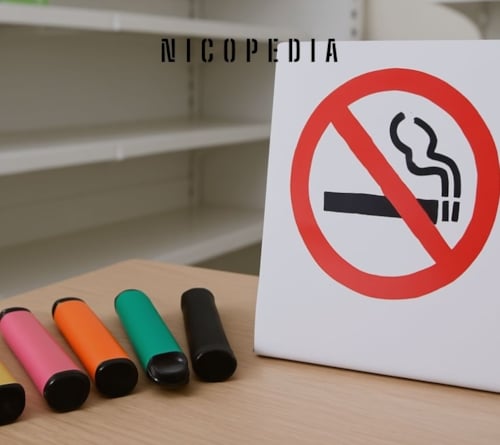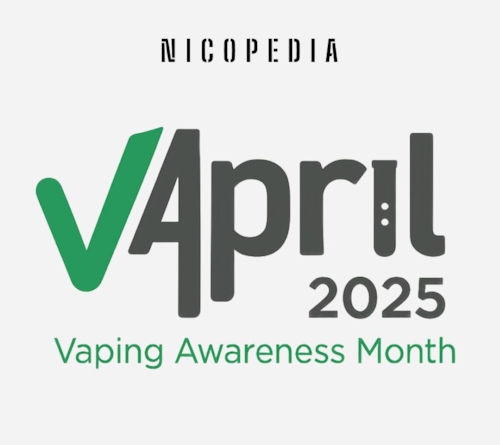Published 2024-12-11
Did New Zealand's Push for Vaping Work Too Well?
The proportion of smokers in New Zealand has decreased dramatically in just 10 years. Currently, only 6.8 percent of the population smokes, compared to 15 percent in 2013. Meanwhile, the proportion of vapers has increased significantly since the products were regulated in 2018. Today, just over 10 percent of the adult population vapes.

"New Zealand's success is proof that the country's progressive approach to harm reduction works. By accepting vaping and other less harmful alternatives on the market, New Zealand has seen smoking rates drop to really low levels. This should be just as interesting for the UK Government to look into,"
E-Cigarettes Have Become Popular – Especially Among Young Adults
In the youngest age groups, vaping has practically replaced smoking – in the 18-24 age group, only 3.8 percent smoke daily, while nearly 20 percent vape more or less regularly.
“Smoking among younger people is so low that it is now difficult to measure. And that is, of course, worth celebrating. It’s a clear sign that we are winning the fight against smoking-related harm,” says Nancy Loucas, consumer advocate and chair of Caphra, Coalition of Asia Pacific Tobacco Harm Reduction Advocates in a press release.
Government Campaigns and Concerns About Increasing Vaping
The authorities have regularly launched campaigns to encourage smokers to use e-cigarettes to try to quit smoking.
However, the increasing vaping rates are worrying both New Zealand authorities and the current government. According to a report published in 2023, legislation should be tightened to address the rising use of e-cigarettes among young people.
At the same time, the report notes that efforts to encourage older smokers aged 45 and above to switch from smoking to vaping need to improve.
The Need for Targeted Efforts for Older Smokers
“The findings indicate that additional measures are needed to protect youth and young adults from starting to use e-cigarettes. But actions should also be taken to encourage and support older smokers, those who cannot or do not want to quit using nicotine, to fully switch to vaping,” the report authors write.
Proposed Ban on Disposable Models Causes Concern
The New Zealand government responded to the report by proposing a ban on the sale of disposable models and smaller pre-filled pod systems.
Nancy Loucas and Caphra are now concerned about this development. According to Caphra's research, many smokers rely heavily on disposable models or pre-filled pod systems when trying to quit smoking.
"Fifty-five percent of those who have fully switched to vaping use these models to stay smoke-free. The government doesn’t seem to want to consider this. By removing these systems from the market, there is a risk that many vapers will return to smoking. There is also a significant risk that they will turn to the black market instead."
Strict Regulations for E-Cigarettes Already in Place
The sale and marketing of e-cigarettes are already heavily regulated in New Zealand.
Age restrictions are in place, as well as rules on how manufacturers may market their products. Only simple descriptions of flavours are allowed, and only the basic flavour may be used in product names.
Planned Measures Risk Backfiring
Despite this, the government now wants to force speciality stores to hide e-cigarette products behind the counter. According to Nancy Loucas, it appears that a sense of panic is prevailing among decision-makers, often fuelled by politicians pushing for a ban on all nicotine products.
The Vaping Debate Marked by Panic and Prohibition Advocacy
“The rhetoric is very intense, and much of the debate is driven by prohibition advocates who try to frame issues that don’t exist in reality. It seems as though our politicians have completely forgotten that we already have extensive legislation in place to prevent uptake among young people. It is also easy to forget that young people do not access these products through regulated trade but via other channels. Stores are being punished for something they simply do not do – namely, selling to minors,” says Nancy Loucas.
Risk of Tougher Laws Hindering the Goal of a Smoke-Free Society
Nancy Loucas believes that the proposed legislative tightening by the government risks diverting the country from reaching the goal of a smoke-free society – where only 5 percent of the population smokes. At the very least, it will slow down progress.
“We are so close now, and we see that the policies and legislation underpinning this development are working very well. We must then ask the question: what happens if we change them?” says Nancy Loucas.
Related articles




